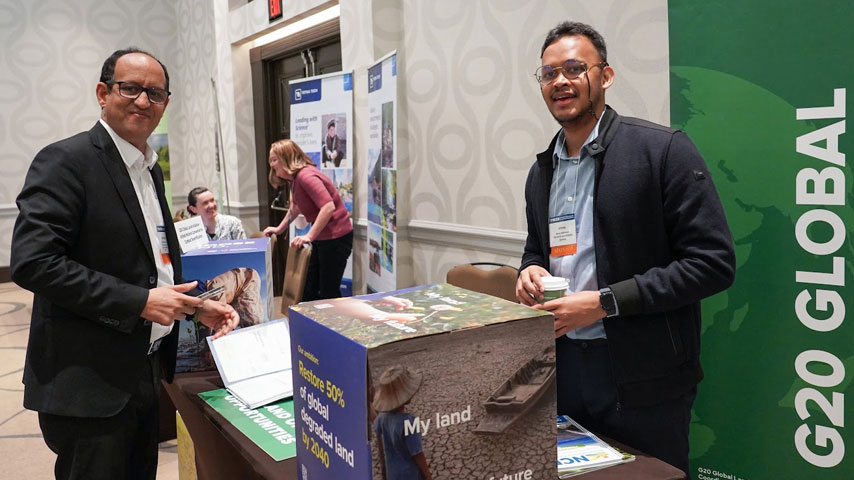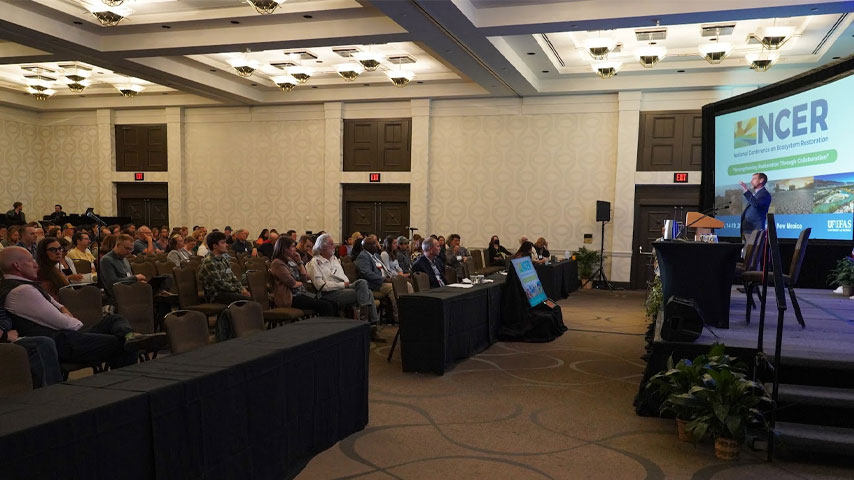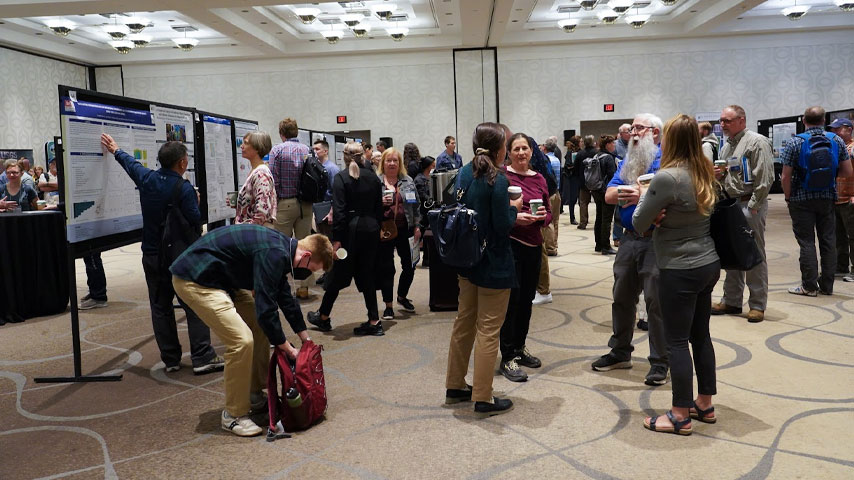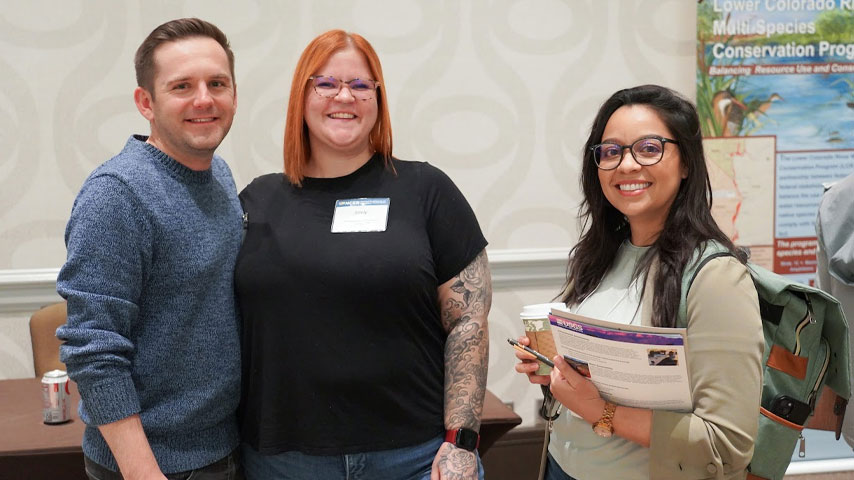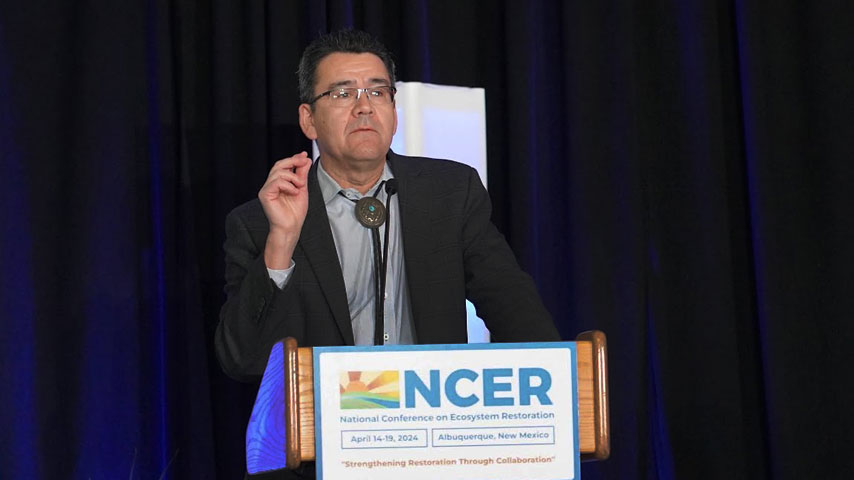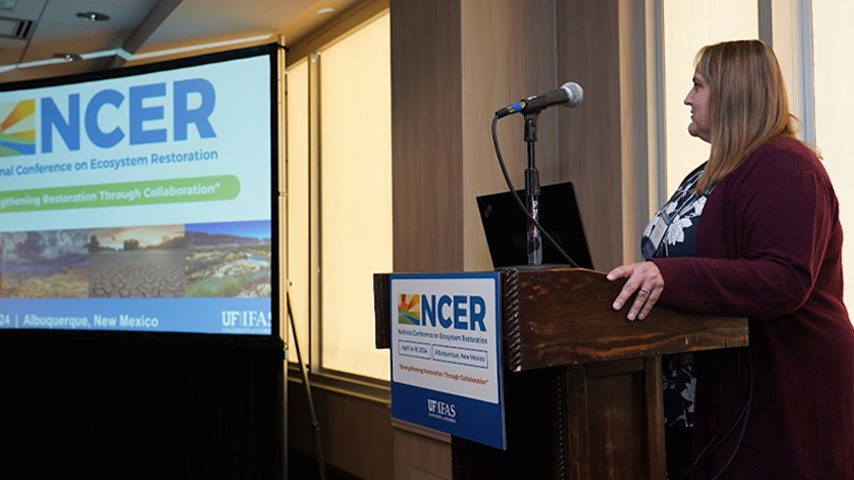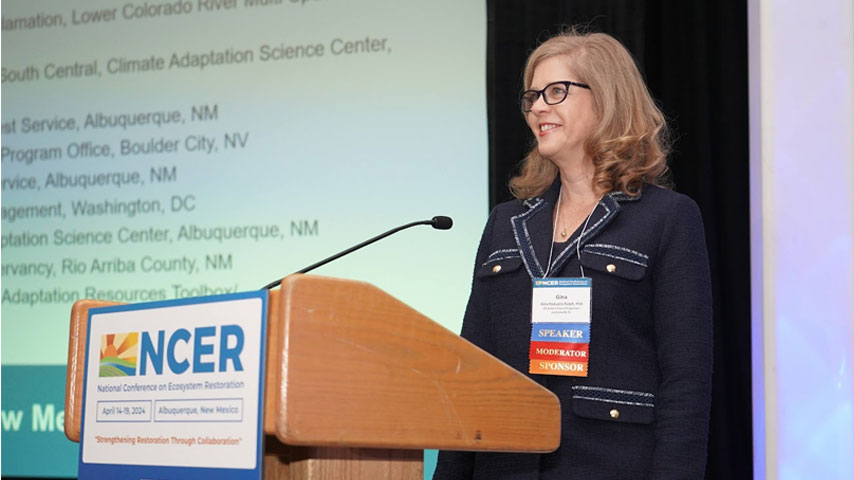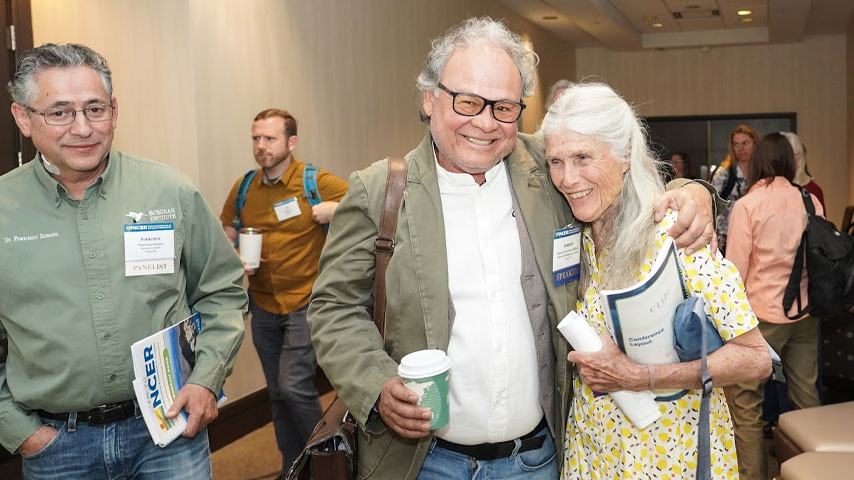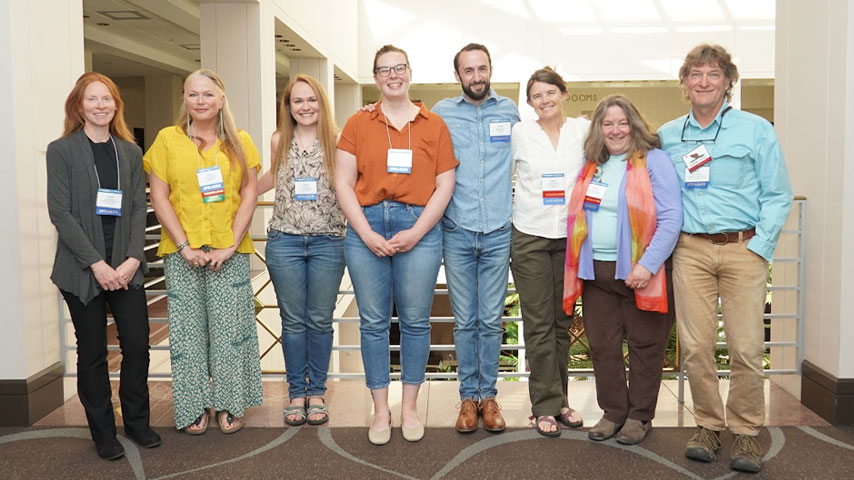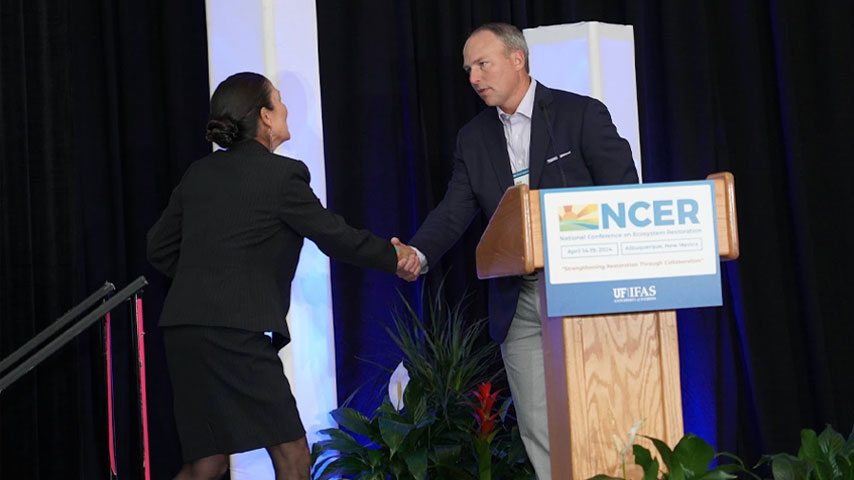Planning Committee

Chadwin Smith
Conference Chair
President
Headwaters Corporation
Kearney, NE
Chad is President of Headwaters Corporation and specializes in working at the nexus of science and policy in large, complex resource management programs. He has worked on several large-scale endangered species recovery and ecosystem restoration programs throughout the United States over the past 25+ years including the Platte River Recovery Implementation Program, the Trinity River Restoration Program, the Middle Rio Grande Endangered Species Recovery Program, the Comprehensive Everglades Restoration Program, the Missouri River Recovery Program, and restoration efforts in coastal Louisiana and the Gulf of Mexico. His expertise includes adaptive management (AM), adaptive governance (AG), review of restoration program structure and function, decision analysis, data synthesis, and engaging multiple stakeholders. Chad holds a B.S. in Fisheries and Wildlife and a Ph.D. in Natural Resource Science/Adaptive Management from the University of Nebraska-Lincoln and a Master of Public Affairs from Indiana University-Bloomington.
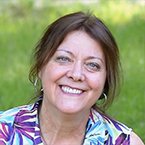
Beth Miller-Tipton
Conference Coordinator
Director
UF/IFAS Office of Conferences & Institutes (OCI)
Gainesville, FL
For three decades, Beth has been at the helm of the UF/IFAS Office of Conferences and Institutes (OCI), steering it with her visionary leadership. Her role as Director has seen her lead a passionate team dedicated to bringing together experts and innovators with a shared goal: to forge a better future through their collective efforts. Beth’s influence extends beyond administrative duties; she is also the orchestrator of major scientific gatherings, including the notable NCER conferences. Her academic journey began at the University of Florida, where she earned a Bachelor of Science in public relations, a foundation that has undoubtedly contributed to her successful career in managing scientific discourse and collaboration. Beth’s commitment to excellence has not only propelled OCI to new heights but also fostered a community where knowledge and purpose converge to create meaningful change. Her tenure is a testament to the power of dedicated leadership in the pursuit of academic and professional synergy.

Nicholas G. Aumen
Visiting Professor
UF/IFAS School of Natural Resources and Environment,
Loxahatchee, FL
Nick Aumen has been a driving force in the Greater Everglades Priority Ecosystem Sciences program under the UF School of Natural Resources and Environment, focusing on the restoration of this vital ecosystem. His 15-year journey as an aquatic ecologist at Everglades National Park saw him leading a team that tracked the park’s ecological recovery. Prior to this, as Research Director at the South Florida Water Management District, he managed a large team of scientists dedicated to ecosystem restoration research. Educationally, Nick holds a B.S. and M.S. in biology from the University of West Florida and earned his Ph.D. in microbial ecology at Oregon State University. His academic path led him to the University of Mississippi, where he became a tenured Associate Professor of Biology. Now in Florida, he is an affiliate faculty member at Florida Atlantic University and the University of Florida. Nick’s commitment to environmental conservation is evident in his five-year tenure on the Sierra Club’s national Board of Directors, where he served as Vice-President and Treasurer, contributing to the governance of the historic 120-year-old organization with over 750,000 members.

Darcy Austin
Science Manager
State Water Contractors (SWC)
Sacramento, CA
For over 20 years, Darcy Austin has been a pivotal figure in tackling the complex challenges of the San Francisco Bay-Sacramento-San Joaquin Rivers Delta (Bay-Delta). Her expertise in contaminants and zeal for California’s water issues have been instrumental in understanding the delicate balance between ecology and water supply. Darcy’s academic credentials, a BS in Biology with a focus on Microbiology and Parasitology from Colorado State University, and an MPH with a concentration in Environmental Health and Toxicology from San Diego State University, have equipped her well for her endeavors. In her role, Darcy has been committed to applying the finest scientific methods to address California’s management issues. Since her start with the State Water Contractors (SWC) in 2018, she has directed the funding of over $10 million towards research projects aimed at filling knowledge gaps in the Bay-Delta system and its watersheds. This investment is crucial for demystifying how to maintain a thriving estuarine ecosystem that also serves as a vital water source for millions and an irrigation system for vast farmlands. Key to this mission is the restoration of extensive tidal marshes, floodplains, and salmonid habitats in the Delta and its rivers. Outside of work, Darcy enjoys nurturing her two sons, teaching yoga, gardening, and exploring new places.

Ryan Clark
Program Manager
Halff, Inc.
Baton Rouge, LA
Ryan Clark is a highly experienced professional with a background in research and project management. Ryan started his career at ARCADIS U.S., Inc. in 2006 as a Project Scientist, where he worked until 2013. During this time, Ryan gained valuable experience in scientific research and project management. In 2013, Ryan joined The Water Institute of the Gulf as a Research Scientist, and later took on the role of Research Scientist/Business Development Principal. In 2020, he became the Research Scientist/Deputy Director of Strategic Partnerships. Through his various roles at The Water Institute of the Gulf, Ryan demonstrated his expertise in strategic partnerships and business development. Ryan recently joined Halff Associates in 2022 as a Program Manager, showcasing his leadership abilities and project management skills. Overall, Ryan Clark's work experience highlights his consistent growth and expertise in scientific research, project management, and strategic partnerships. Ryan Clark attended Louisiana State University from 1991 to 1996, where they earned a Bachelor of Science (B.S.) degree in Geology. Ryan later pursued further education at Tulane University from 1999 to 2003, completing a Master of Science (MS) degree in Geological and Earth Sciences/Geosciences.
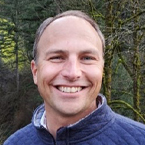
Matt Grabau
Adaptive Management Group Manager
Bureau of Reclamation, Lower Colorado River, Multi-Species Conservation
Tucson, AZ
Matt Grabau has been working on riparian restoration and species conservation efforts since 2005, primarily along the Colorado River in the U.S. and Mexico. He received his B.S. (Wildlife Science), M.S., and PhD (Agricultural and Biosystems Engineering) from the University of Arizona in Tucson. He has worked for federal agencies, a non-governmental organization, and as a consultant. Matt has applied his expertise in restoration ecohydrology, project management, and program management to the Lower Colorado River Multi-Species Conservation Program (LCR MSCP) and Minutes 319 and 323 of the US-Mexico Water Treaty. Matt began working with the Bureau of Reclamation in 2023 as the LCR MSCP’s Adaptive Management Group Manager.
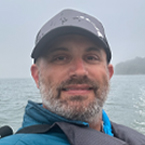
Jason Hassrick
Managing Director & Senior Fish Biologist
ICF
San Rafael, CA
Jason Hassrick boasts over two decades of experience in ecological research, with a focus on water resource management in rivers and the San Francisco Estuary. His expertise extends to biological oceanography within the California Current ecosystem and tracking marine organisms in the North Pacific. As a leader in ecological research, Jason delves into ESA species’ life histories, examining how management actions impact these species. His work involves studying animal movement through their habitats using various forms of animal telemetry. Jason’s career includes roles as a federal agency scientist at Reclamation, where he worked on fish passage at Shasta Dam, and at NOAA Fisheries, where he contributed to outmigration survival studies of winter-run chinook salmon. He has collaborated with nonprofit and university research groups, focusing on peregrine falcon recovery in California and lion and hyena conservation in Laikipia, Kenya.
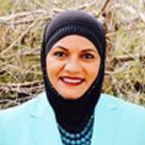
Fahmida Khatun
Hydrologist/H&H Modeler
Restoration Sciences Branch, South Florida Natural Resources Center
National Park Service
Boynton Beach, FL
Fahmida Khatun has more than 19 years’ experience working on Comprehensive Everglades Restoration Projects (CERP), America’s largest restoration project. She has worked for federal government (Department of the Interior, DOI), State government (South Florida Water Management District, SFWMD) and private sectors (Parsons Water & Infrastructure Corporation and DHI Groups, Inc.). She is a key Hydrologic and Hydraulic (H&H) Modeler at Interagency Modeling Center (IMC) for 19 years. She served as the former IMC Program Manager overseeing CERP modeling. Currently, she is working as a Hydrologist and Ecosystem Modeler at South Florida Natural Resource Center, Everglades National Park, National Park Services. Formerly, she was a Principal Engineer and H&H Modeler at SFWMD. In the beginning of her career, she taught Water Resources Engineering for 5 years in Bangladesh University of Engineering and Technology (BUET). He received her B.Sc. (Civil Engineering) from BUET, where she also received her M.Sc in Water Resources Engineering. She received M.Sc. in Computer Aided Engineering from Carnegie Melon University. She is a registered Professional Engineer in Florida and a certified Project Management Professional.

Gina Paduano Ralph
Science Integration Branch Chief
Planning Division
U.S. Army Corps of Engineers (USACE)
Jacksonville, FL
Gina Paduano Ralph has served the public for more than 20-years working with Martin County, Florida, U.S. Fish and Wildlife Service, U.S. Army Corps of Engineers, Jacksonville District, and the Engineering and Research Development Center. She has worked with the Corps since 2009 in various roles including Lead Scientist, Research Ecologist, Environmental Branch Chief, South Florida Section Chief, and Coastal Navigation Section Chief, incorporating sound science into decision making for Corps’ Civil Works initiatives. She currently is the Chief of the Science Integration Branch and the Restoration, Coordination and Verification (RECOVER) Program Manager for the Comprehensive Everglades Restoration Plan. She holds a doctorate in ecology and conservation biology from Florida Institute of Technology, a master’s degree in zoology from Connecticut College and a bachelor’s degree in biology from Rollins College. Dr. Ralph is a graduate of the Florida Natural Resources Leadership Institute and is a skilled leader in conflict management, facilitation, and communication for those working in natural resource management.
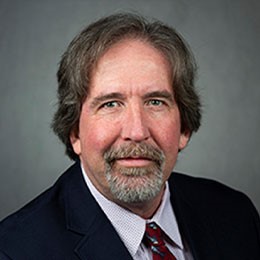
Matt Whiles
Professor
UF/IFAS Soil, Water, and Ecosystem Sciences
Gainesville, FL
Dr. Matt Whiles is a Professor at the UF/IFAS Soil, Water and Ecosystem Sciences Department at the University of Florida. Before UF, Whiles was a Professor at Southern Illinois University (SIU), where he directed the Center for Ecology and the Cooperative Wildlife Research Laboratory. Matt holds a Ph.D. in Ecology, a masters in Entomology and a Bachelor of Science in Biology. Matt’s research focuses on quantifying the roles of animals in freshwater ecosystem function. He has led numerous large, collaborative projects, including the Tropical Amphibian Declines in Streams (TADS) project, examining the ecological consequences of amphibian declines. He has worked closely with agencies and NGOs on stream, wetland management and restoration and served on numerous panels guiding management of freshwater habitats, including ecosystem restoration.
